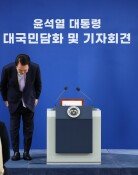97% of economic experts say the Korean economy is in crisis
97% of economic experts say the Korean economy is in crisis
Posted November. 22, 2022 07:46,
Updated November. 22, 2022 07:46
In a survey conducted by the Korea Development Institute (KDI), most domestic economists answered that the Korean economy is currently in crisis, a sentiment also shared by the general public. Amid growing concerns over the future of the nation’s economy and low growth, the winter battles from labor unions are poised to start on a scale that has not been witnessed for the past several years. Beginning with the cargo transport union’s refusal to work this week, a swathe of strikes by several irregular worker’s unions from the subway, railroad, and school is scheduled to be staged one after another.
According to the KDI’s survey conducted in two tracks, one subjecting the subject-field experts and the other to the general public, 97% of experts and 96% of the general public said they think Korea’s current economy is in crisis. Ninety-three percent of the experts and 87% of the general public also believe, according to the survey, that the country needs mid- to long-term strategies and plans to overcome the crises. Such results reflect the sentiment of both respondent groups, which call for a new future growth strategy, putting aside the glory of the country’s past success in societal and economic areas.
Several areas signal that the Korean economy has been sinking deep into the swamp of low economic growth. A downward trend in exports has been prominent since last month. The international oil and commodities prices level ensures that the country will suffer from its eight-month consecutive trade deficits. The KDI forecasts the country will grow only by 1.8% next year, the lowest rate except during the oil shock, foreign exchange crisis, and global financial crisis in the past.
This time the crisis is all the more serious because, unlike the previous cases where most of the problems originated from outside, the under-expressed internal issues have started to blow out. Beginning this coming Thursday, the Cargo Transport Workers Union says it would shut down key business sites across the nations, demanding the establishment of a permanent safe freight system, a.k.a. ‘minimum age in the cargo transport industry.’ Such extremity follows their previous actions, severely disrupting the country’s logistics system and causing massive damages five months ago. In the meantime, the Seoul Transportation Corporation's union plans to cut subway services by half from the 30th. While the Korean Confederation of Trade Unions has been pushing for the so-called “Yellow Envelope Laws,” which restrict companies from claiming damages incurred by illegal strikes, the business world and the government cannot approve their request as its content goes against the constitution.
The distinction of the current trend of complex crisis sweeping across the world is that it causes shock to everyone. Employees and self-employed suffer from high inflation and expensive interest rates, while large corporates struggle due to falling profits and capital shortages. In such a situation, waging a fierce battle to push for a one-sided argument would not help society to overcome the crisis. This is the time to step back and share the pain. The government and the political circle need to work with bipartisanship to be more actively engaged in mediating the growing conflicts.







